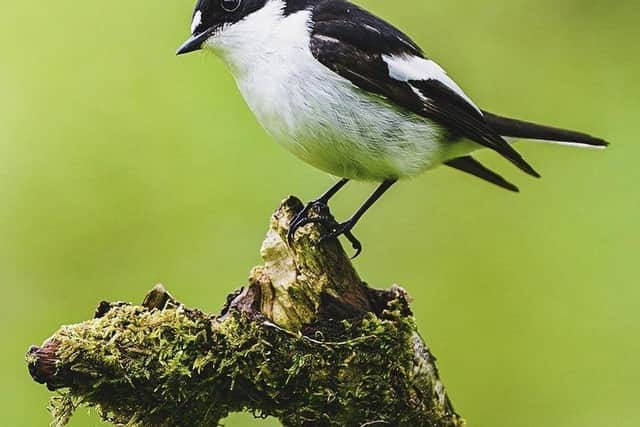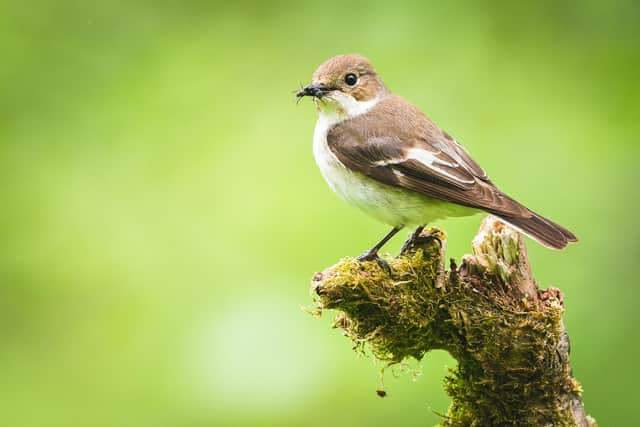Record-breaking breeding season for striking Pied Flycatchers at a number of RSPB nature reserves
and live on Freeview channel 276
The amber listed bird spends spring and summer breeding in the UK before returning to West Africa during our winter. Although small, the males have striking black and white plumage while females are brown and white.
Like many other migratory bird species, Pied Flycatchers are facing complex challenges both in breeding and wintering areas, while increased frequency of weather events linked to climate change can cause issues both on migration and here in the UK.
Advertisement
Advertisement
Although further science and monitoring is needed to help understand and address the challenges they face, the birds have thankfully flourished in RSPB managed woodlands during spring 2023, including at RSPB Coombes and Consall Woods in Staffordshire and Haweswater in Cumbria.


Nestled in the Lake District, Haweswater, which the RSPB manages in partnership with the landowner United Utilities, has celebrated the highest number of Pied Flycatchers recorded in 10 years. In 2023, 29 singing males were recorded which suggests a total population of 50 to 60 pairs across the reserve.
Talking of the species’ success, Spike Webb, RSPB warden at Haweswater, said: “I’ve been monitoring Pied Flycatchers in the ancient woodlands of Haweswater for many years. Their population here has always been pretty steady which has been really encouraging for us at Haweswater.”
“This summer we had the best number in 10 years. Given that these birds come all the way from West Africa in Spring to breed here in the Lake District, it’s always a joy to see them back in the forests of Haweswater and especially when their numbers are so good.”
Advertisement
Advertisement
In Staffordshire, the number of the striking birds occupying nest boxes at RSPB Coombes Valley and Consall Woods in 2023 was also a record year, with 66 birds counted.


Meanwhile, in Wales, the RSPB are working with volunteers to provide nest boxes for the species, while Highland Cattle grazing is being used to create the right habitat conditions in the Celtic Rainforest. Pied flycatchers can also be found at Lake Vyrnwy, in Powys, and over in Scotland, a project is underway to boost numbers at RSPB Wood of Cree.
Spike continued: “The conservation efforts of our amazing staff and volunteers across our woodland nature reserves is nothing short of amazing and is likely to benefit a range of species alongside Pied Flycatchers.
While these positive interventions are making a difference at sites like Haweswater, we mustn’t forget that like other migratory species, these birds are being affected by climate change along their migratory routes. Therefore, we must continue to look beyond our nature reserves to address the national decline of Pied flycatchers so that they can thrive again in woodlands across Britain.”
Advertisement
Advertisement
The success for Pied flycatchers this year at RSPB Coombes Valley and Consall woods and at Haweswater is thanks to dedicated conservation efforts including habitat management in the woodlands these birds call home. RSPB staff and volunteers have installed specially designed Pied Flycatcher nest boxes, as well as clearing dense growth from the woodland understory such as Holly. In doing so, other plants have been able to flourish, such as Bluebells, Wood Anemone and Wood Sorrel, in turn attracting more insects for Pied Flycatchers to feed on.
This work is crucial, especially as local weather can negatively impact on their breeding success. Providing good quality habitat, including a place to nest, will likely become even more critical as climate change continues to impact our weather here in the UK.